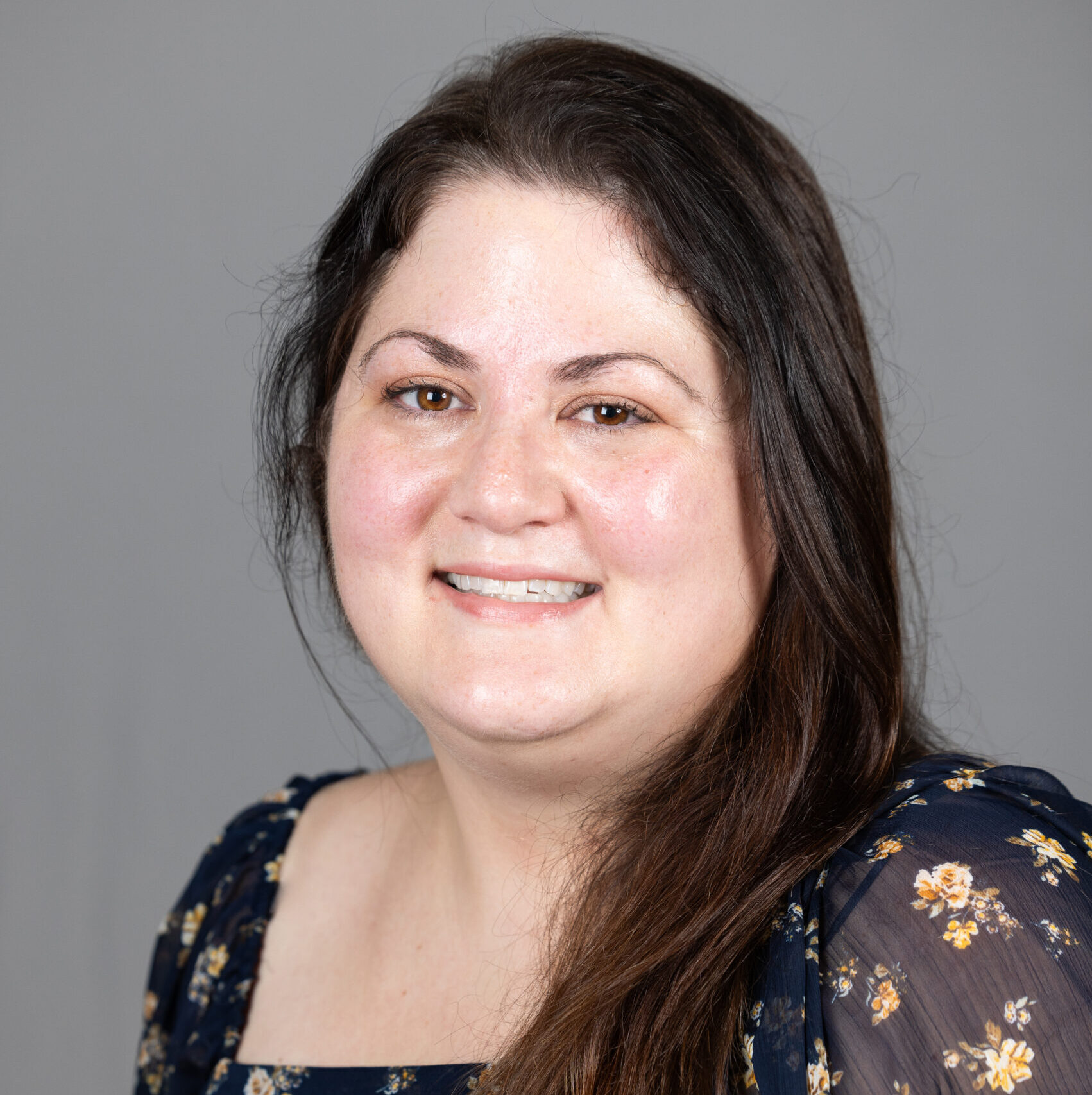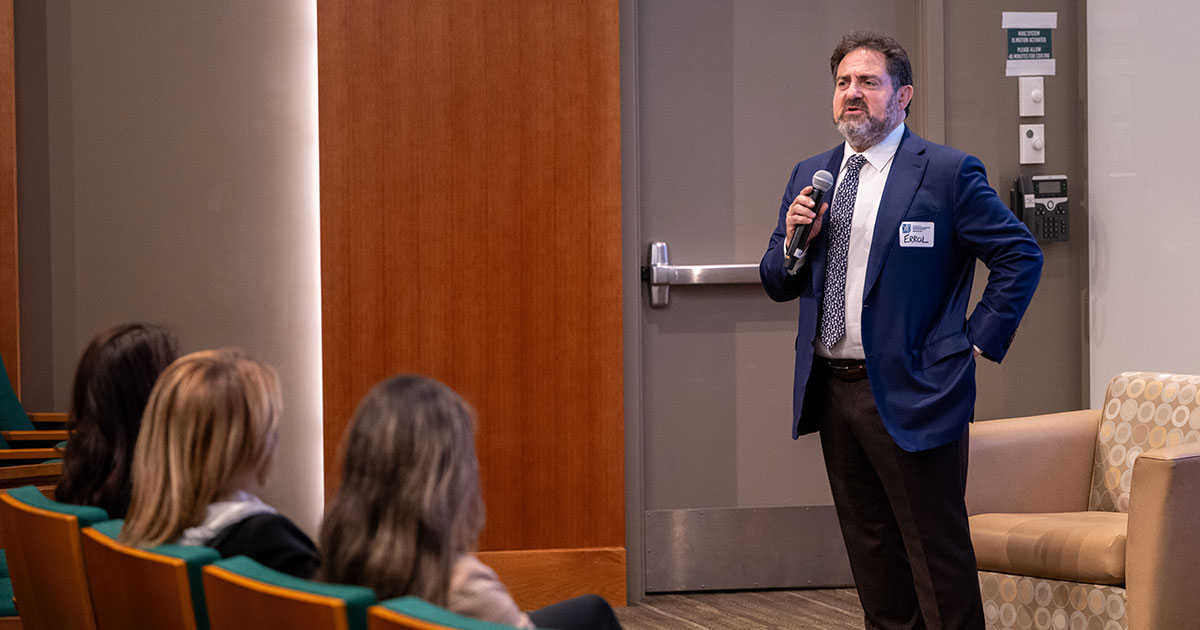The Class of 2027 Is Something Special
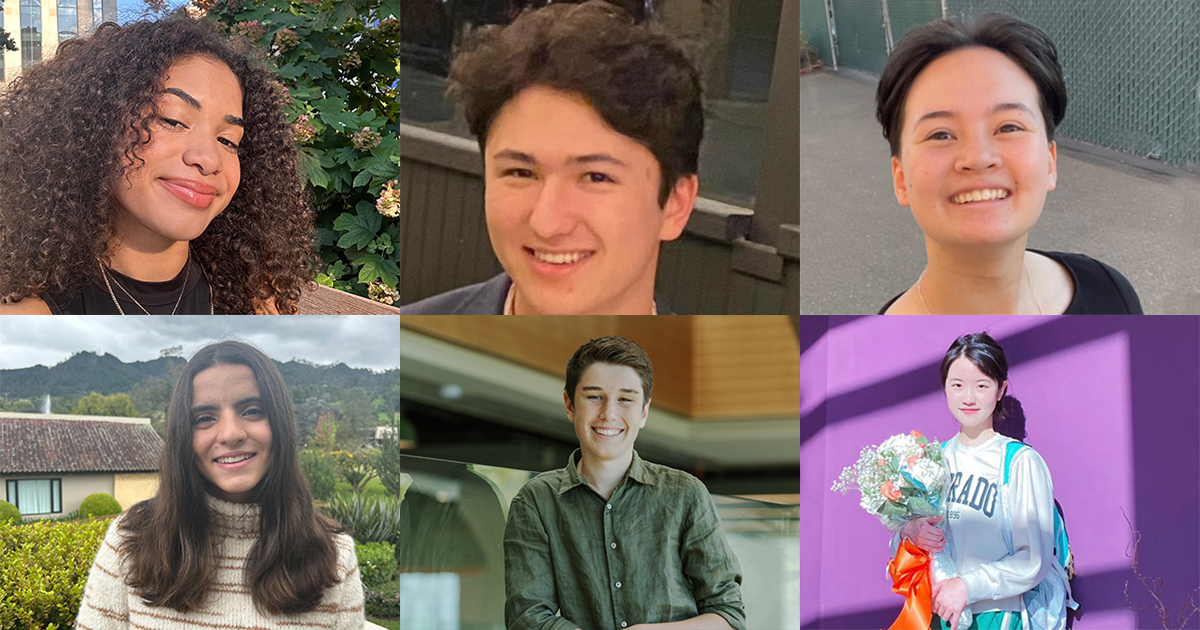
When you talk to members of Babson’s incoming undergraduate class about their expectations, you get some similar responses. They are excited about their Foundations of Management and Entrepreneurship (FME) businesses. They are eager to explore concentrations and what entrepreneurship means to them. They want to make lifelong friends and land a stellar internship. They don’t want to forget their hobbies or lose their sense of home but know the opportunities on campus will only expand their lives.
The Babson experience awaits them, and they can’t wait to get their hands dirty with Babson green.
But, among the common denominators sit the differentiators that make Babson students more than just hardworking, intelligent young minds—they have a je ne sais quoi that makes them perfect fits for the top school for entrepreneurship.
The Class of 2027’s indescribable factor comes from the wide-ranging experiences of its members. They are trapeze performers. Documentarians. Artists and teachers. Elite skiers and swimmers. First-generation students and student leaders. They want to explore AI and technology, save the planet, and help other people feel welcome and supported in their communities.
The specialness of a Babson student is ineffable. The only way to find out more is to talk to them.
Sean Collins
Because he dealt with an undiagnosed, rare childhood condition, Sean Collins is motivated to advocate for those who are unseen. That passion led him to conduct biomechanics research to address his mother’s autoimmune disease.
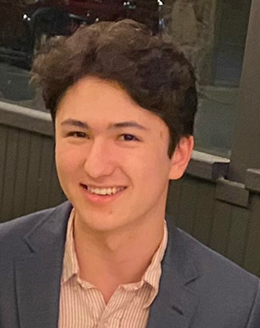
Sean Collins ’27
How did you get involved in biomechanics research?
“I initially started biomechanics research when I was 13, which combined my entrepreneurial spirit and my desire to help others. I was motivated to help those in need by making an affordable and adaptable biomechanical hand. I had an initial prototype that I kept improving and reworking over the years. This was a very lengthy process that involved a multitude of areas of expertise—material research, electrical engineering, economic viability, and sustainability—that was ultimately cut short because larger entities with substantial funding were able to make better products.
“As a junior, I shifted to another issue that was beginning to affect my mom. I set out to create a rehabilitation device for the lost range of motion within the hands, using soft robotics to emulate the ways arteries move blood throughout the hands. I oversaw a team of like-minded students, and we eventually were able to acquire interest for seed investors.”
Elliot Jones
Elliot Jones, a documentarian, comes to Wellesley all the way from New Zealand and is eager to get back into the classroom after years of virtual learning.
Tell us more about your documentary.
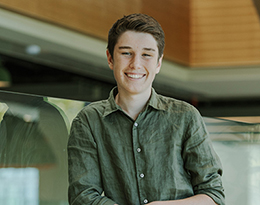
Elliot Jones ’27
“The goal was to change the way New Zealanders see dyslexia and reframe it as a strength. I engaged well-known New Zealanders who have dyslexia and produced a documentary called Unlocking Potential.
“It was challenging to encourage famous New Zealanders to be interviewed by a teenager with a camera and share their most vulnerable memories. After many failed cold calls, I landed on a fantastic lineup that included Scott Roberston (upcoming All-Blacks rugby coach and former All-Black), Tom Walsh (Olympic shot-put medalist), Alex Tarrant (actor, NCIS Hawaii and The Lord of the Rings: The Rings of Power), and Michelle Sharp (entrepreneur). I sought to bring together a group of heroes across a diverse set of industries, so every young dyslexic could find inspiration among them.
“After raising $60,000, selling out a 400+-seat premiere, and reaching 20 percent of the New Zealand population with the message, I have continued to spread a reframed perspective of dyslexia through schools and media channels, including prime-time TV and podcasts. My hope is that when people hear ‘dyslexia,’ they relate it to roles like innovator, leader, or entrepreneur.”
Julia Marcelis
One trip to the circus changed the life of the Bay Area’s Julia Marcelis, who also is a passionate member and advocate for the LGBTQ+ community.
You are a circus performer and trapeze artist. What has this experience taught you about yourself?
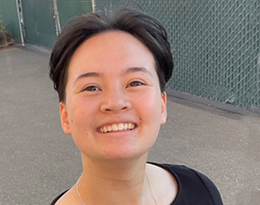
Julia Marcelis ’27
“I saw the circus first when I was 7 years old and fell in love with it. From there, I started taking classes in several different skills including acrobatics, flying trapeze, and clowning. Training for the circus has helped me become more self-confident and aware of where my physical and mental limits are. In the future, I would like to run my own circus company and produce meaningful art through the circus.
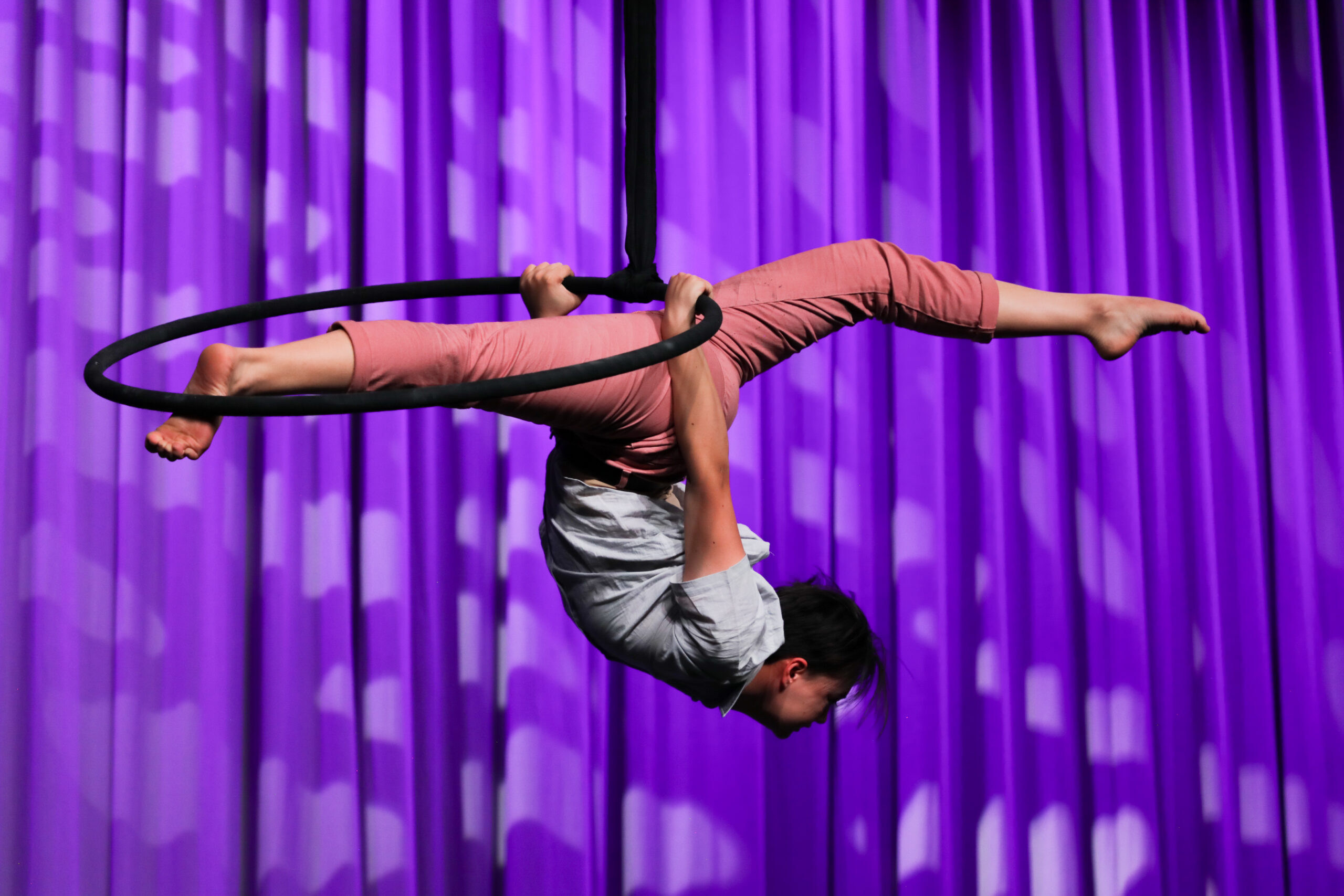
Julia Marcelis performing trapeze.
“Performing arts have played a huge role in my life, and I am dedicated to trying to better fund the arts, especially to expand access to the arts for more teens and children. My work so far with the Jenny Lin Foundation, a Bay Area-based child safety organization, has also made me see the importance of communities coming together for the better. I want to continue bringing people together, and I think the arts are an amazing way to do that.”
Lucia Saab Arango
Proud Colombian Lucia Saab Arango spent her secondary-school years in the Model UN and advocating for voting rights in her home country.
You created a group to inform students about their voting rights. Can you share more about this endeavor?
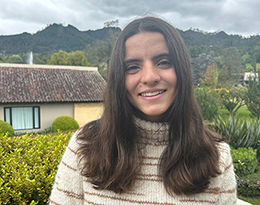
Lucia Saab Arango ’27
“In 2021, Colombia hosted elections for the Municipal Youth Council. Only citizens aged 14 through 28 were eligible for this election. Out of this demographic, only about 10 percent of the population exercised their right and duty to vote. And, of those 10 percent, 24 percent of the votes were null which indicated that people in Colombia did not know how to vote, leading to a disappointing turnout in the elections. I discussed the issue with a friend, and we agreed that we had to do something about this by integrating voting consciousness into the school’s curriculum.
“We talked with our citizenship and ethics professor, and after getting the green light, we spent our breaks planning an engaging class about the importance of conscious and informed voting. We printed out the voting card and simulated the situation. Our purpose is to form aware and conscious citizens because, as I view Colombian politics, now is not a time to be silent or ignorant of the issues our country faces.”
Genesis Sanchez
During the pandemic, Bronx teenager Genesis Sanchez started a cosmetics business with her sister, while simultaneously helping her fellow students feel more welcome as the president of Vivo Latino at her high school.
What interested you in the beauty business?
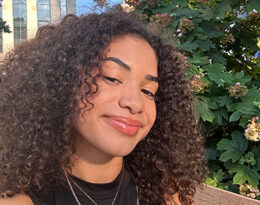
Genesis Sanchez ’27
“It wasn’t the idea of making someone look better, it was the hope that I could make people feel better. I struggled immensely throughout middle school and early childhood with my natural hair and didn’t want to embrace it. I lacked confidence and self-esteem to showcase it because it was so heat damaged.
“Once I gained the willpower to change that, I wanted to help others do the same but struggled to find products that met my hair’s needs. I took it upon myself to research natural, age-old alternatives, share my formulations with my close family, and gained enough encouragement to offer new hair care solutions to more people.
“Satisfied customers often sent us their ‘client cams’ or pictures of them with their favorite products, and when we expanded our selection from not only hair gels and butters to body butters and scrubs, they raved about having products they could trust were good for them. Feedback like that, and even the ones where customers highlighted areas for improvement, made chasing the mission statement worthwhile.”
Meizhu (Aurora) Wu
Monet-enthusiast Aurora Wu has been an artist since age 4 and is currently on her own journey as an art teacher in Massachusetts.
What leadership positions did you pursue in high school?
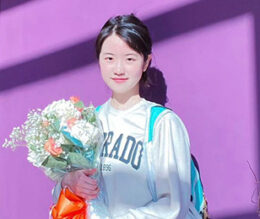
Aurora Wu ’27
“I’m the co-founder of Special Art for All, a nonprofit organization teaching kids with autism how to draw. At first, I doubted my qualifications as an instructor.
“Later, during COVID, I started an online art class for children with autism. Thirty minutes before the first class began, I tensed up. What should I do to start a conversation with children that I don’t know? Would they understand my explanation of each step? What if the iPhone I taped to my water bottle (a makeshift tripod) falls off and crashes onto my drawing paper? When I greeted the first student joining the Zoom call, my voice trembled. A simple greeting became a tongue twister.
“I felt a responsibility to show the students how fun it is to draw. As the children spread the colors on the pages, they expressed themselves with energy. It was no longer essential that students draw step by step. The children’s excitement in using the colors to create a wonderful piece on their own reminded me of my first-time drawing scribbles. At the end of the lesson, when the students lifted their pages for me to see, the vibrant expression on the papers was reflected in the expressions on their faces. The children had created art and found joy in the process. They were on their way. I finally felt like a real teacher.”
Posted in Community
